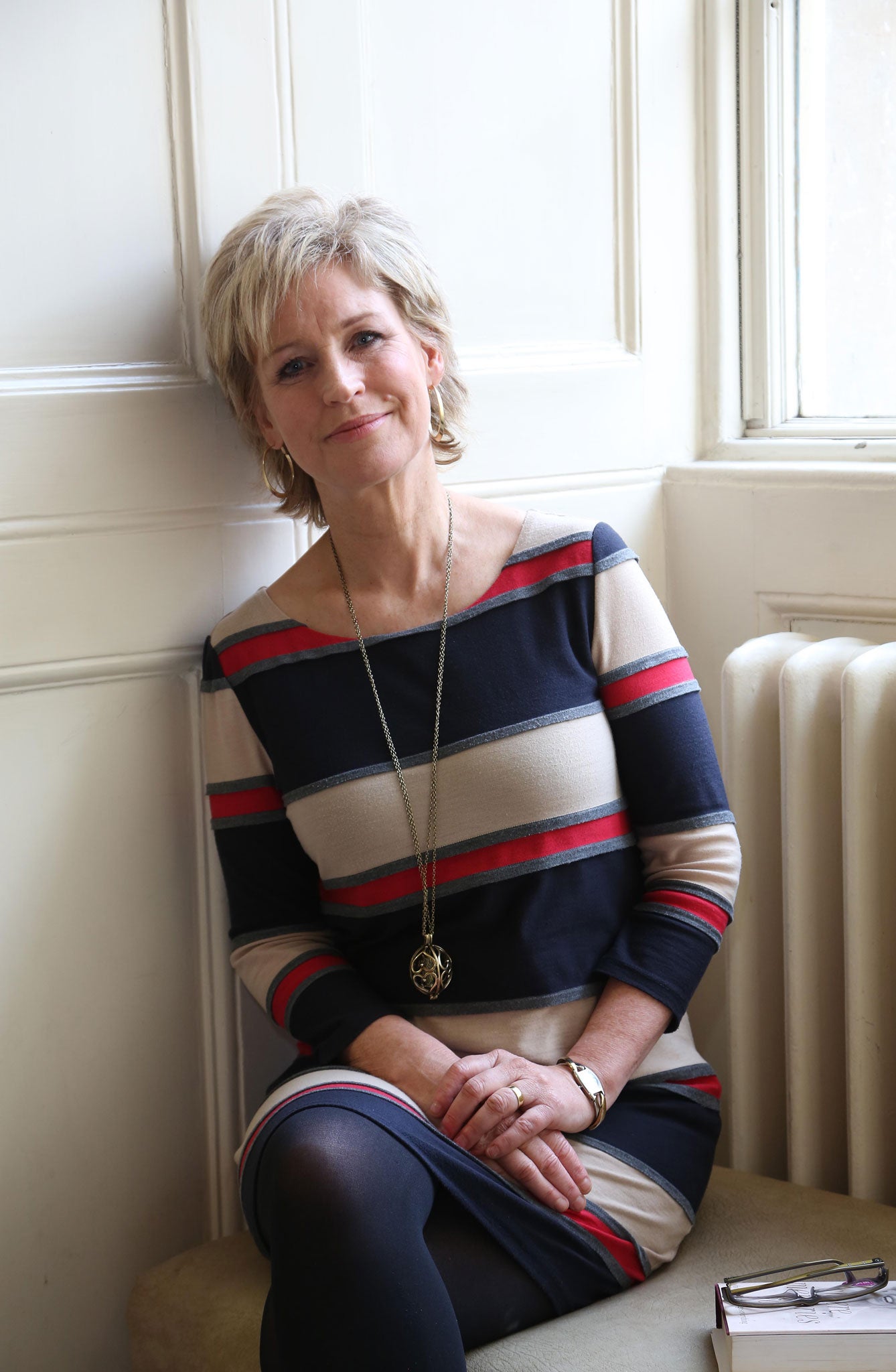Sally Magnusson: Dementia care in Britain 'not fit for purpose'
Presenter said society's treatment of dementia patients was 'less than human'

The current system of care for people with dementia is “not fit for purpose” and society has a tendency to treat those with the disease as “less than human”, presenter Sally Magnusson has said.
The daughter of the late Mastermind presenter Magnus Magnusson and journalist Mamie Baird, who was diagnosed with mixed dementia in 2009, sounded a “clarion call” for action at The Independent Bath Literature Festival.
“Before I got involved in this personally, I thought that maybe a blessing of dementia would be that the person isn't aware of what is going on. And I think that society has used that as an excuse to treat people with dementia as somehow less than human. They think that they are not any the wiser and that's why they can be left in hospital with no food or drink. It's not true.”
On Tuesday, the actress Prunella Scales revealed that she had “a sort of mild form of Alzheimer's”.
“She can't remember things very well”, said her husband, Timothy West, in a documentary in which the couple travel the country's canals by boat. “Well it can be a nuisance sometimes but it doesn't stop me being able to open a lock gate or make the skipper a cup of tea,” Scales added.
Magnusson said it was “wonderful” that Scales was talking about her diagnosis.
“There's a stigma around dementia which is so much part of the problem. People don't want to admit to it because once it's out there, people treat folk differently. It's the same as the way cancer was treated 30 years ago - you would never talk about it.
"We need to take the same steps now with dementia as we did with cancer. It is great that Prunella Scales is doing that, and especially that she is talking about the disease from the early stages.”
There are currently 800,000 people in the UK with dementia, a figure that is predicted to rise to one million by 2021; care costs the UK around £23 billion a year – more than heart disease and cancer combined.
In her new book Where Memories Go: Why Dementia Changes Everything, Magnusson charts the decline of her mother, who died in 2012.
While her mother was not a victim of neglect or cruelty, the lack of empathy with and understanding of her condition in hospitals was “staggering”, said Magnusson.
“When she left we swore that never again would she go to another hospital as long as she lived, if we could possibly help it. Hospitals are dangerous places for people with any form of cognitive impairment.”
Magnusson called for more focus on care at home and a rethinking of acute hospital care for patients in the later stages of the disease. “Too many people go into residential care for too long. At the moment it is not a system that is fit for purpose and we can't afford it.”
Last year Magnusson launched Playlist for Life, which provides patients with iPods loaded with bespoke playlists. “Song, more than anything else, is what kept my mother with us. Hymns, Scots ballads, war songs, The Sound of Music... They never lost their magical capacity to restore to her a sense of identity and to bring words fluently, often joyfully to her tongue”, she said.
Her charity is now collaborating with Glasgow Caledonian University on research into music as an alternative to drugs. There is growing evidence that hearing familiar melodies can improve dementia sufferers' awareness and ability to understand as well as their mood. In America, early research by the charity Music and Memory into 1000 care homes showed a 50% reduction in prescriptions for anti-psychotic drugs in homes using the music method, said Magnusson.
“The aim now is to do a piece of major world-leading research into its efficacy. Already we have seen one person after another reconnected to their loved ones and to their selves, through sharing music from their past,” said Magnusson. “There is little that is hopeful about this condition but this is one thing.”
Subscribe to Independent Premium to bookmark this article
Want to bookmark your favourite articles and stories to read or reference later? Start your Independent Premium subscription today.

Join our commenting forum
Join thought-provoking conversations, follow other Independent readers and see their replies